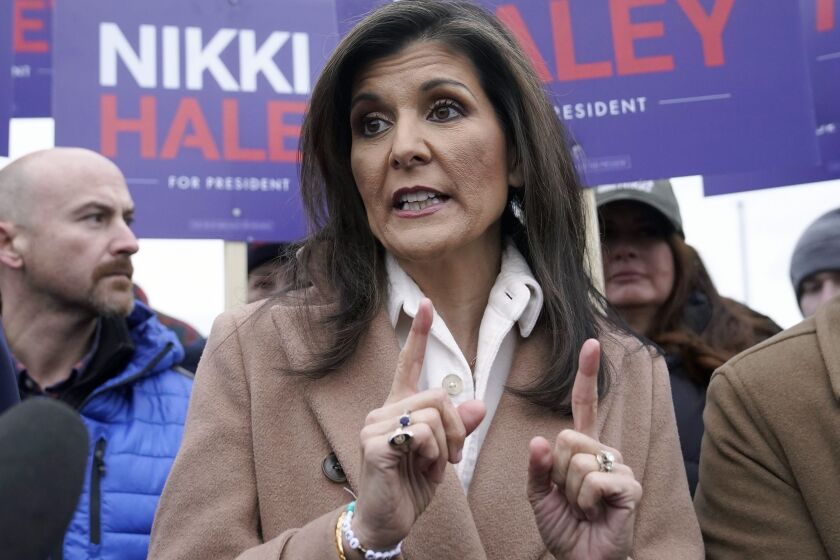Republican voters in Nevada voted against Nikki Haley on Tuesday, handing the only remaining contender to Donald Trump’s GOP candidature an embarrassing night of headlines.
The night was virtually a worst-case scenario for Ms Haley; her campaign elected not to compete in Nevada’s caucuses on Thursday, instead pitting her against three candidates who had already left the contest before Tuesday.
What was the result? Instead of losing to Donald Trump in a “rigged” election, the former governor finished second to “none of these candidates” as vote totals came in.
Her campaign, seemingly aware of how the state was trending, reminded reporters in a memo earlier this week that the campaign had not run ads or made any serious effort in Nevada; Ms Haley herself has not been in the state this year, instead focusing her efforts on campaigning in her home state of South Carolina.
“Nevada is not and has never been our focus,” Haley campaign manager Betsy Ankey told Yahoo News. “I’m truly not sure what the Trump team is up to out there but they seem pretty spun up about it.”
However, even when Mr Trump is not on the ballot, his support in the GOP is still strong enough to beat Ms Haley. Because this year’s rules let voters to participate in both the primary and the caucus, Ms. Haley is now trapped in a one-two punch: Mr. Trump will “win” his uncontested caucus tomorrow, creating another round of awkward headlines for his adversary.
Nikki Haley Plays Down the Humiliating Defeat
Nevada would never alter anything. The state Republican party reduced itself to near-irrelevance this year by refusing to support Nevada’s transition from a caucus to a primary system, thereby discouraging any contenders from investing significant time or money in the state this cycle.
It was always going to be, and has proven out to be, a speed bump for Haley’s campaign as she seeks momentum in South Carolina, which votes on February 24. She desperately needs a victory or a close finish in second place to remain a viable candidate heading into Super Tuesday and beyond.
On Wednesday, with California on the daily agenda, the Haley campaign launched the first phase of their Super Tuesday strategy. A news statement detailed her selection of leadership teams in three states: Washington, Utah, and Massachusetts.
South Carolina remains a make-or-break moment for the Haley campaign, which debuted a new commercial across the state this week slamming her opponent with some of her most aggressive rhetoric yet. The brief spot depicts a Donald Trump obsessed by vengeance and losing a stride due to age, two burdens she claims the Republican Party cannot afford in the autumn.
She’s also recently turned her attention to DC Republicans who have lined up in support of the frontrunner, her attacks bolstered by the unworkable chaos that has consumed the House Republican caucus for months and the apparent collapse of the “grown-up” contingent within the Senate Republican leadership.
Ms. Haley now faces a simple question: will a late-game turn towards condemning Mr. Trump persuade enough Republicans to abandon him in time for a South Carolina victory? If not, the outcome is almost certain.
Aside from open and semi-open primaries, Nikki Haley will not be the Republican presidential nominee unless she can get enough Republicans to support her. In New Hampshire, this did not happen.
Her native state may be her best chance to turn things around. But it may not be enough.
Nikki Haley Says She Won’t Debate Without Trump






